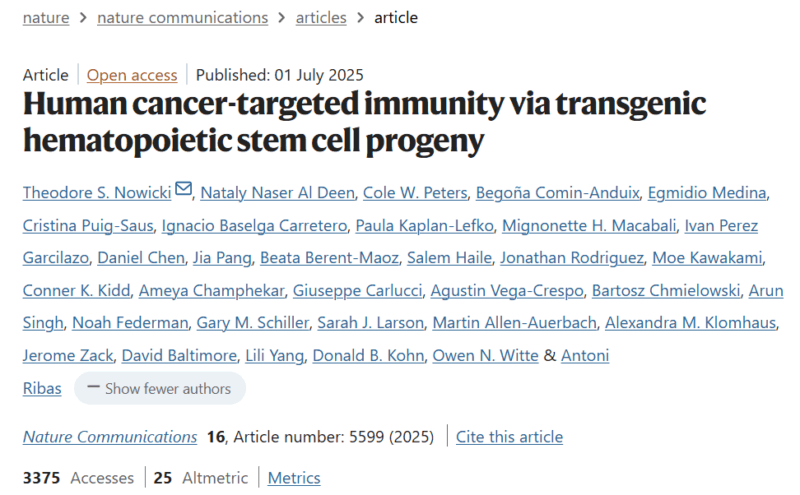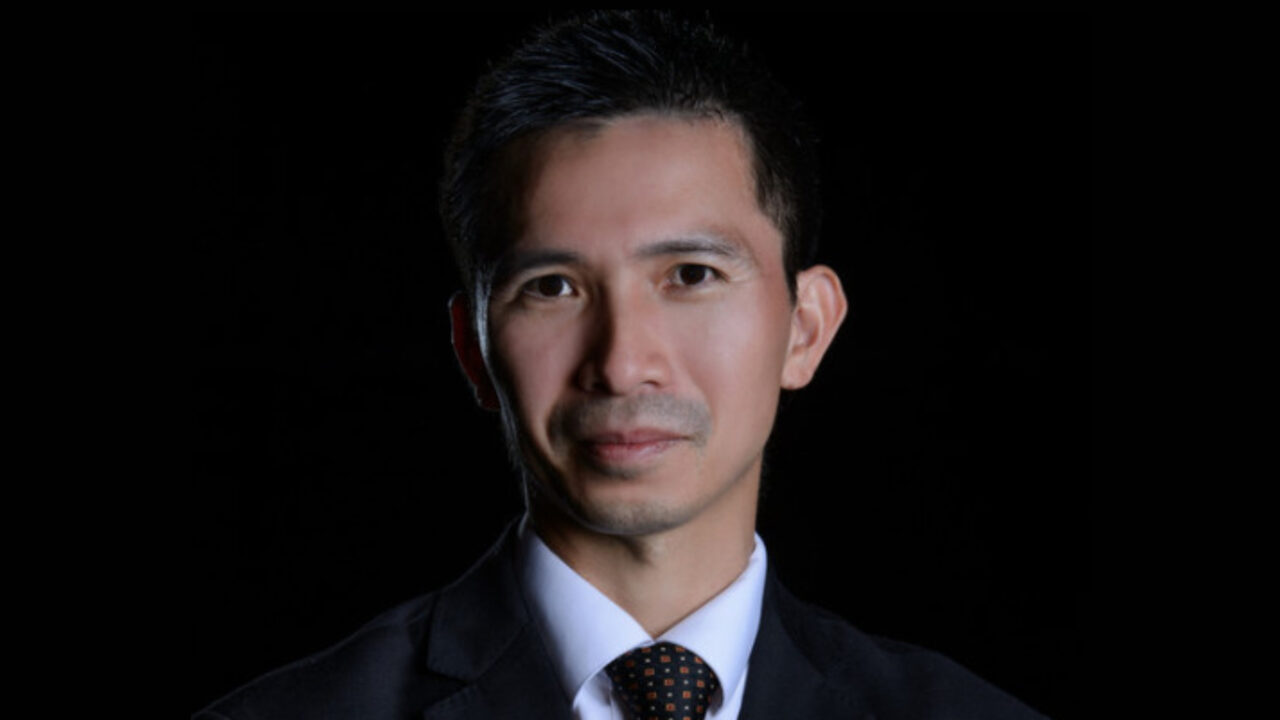Hung Trinh, Senior VP of Operations at Seneca Therapeutics, shared a post on LinkedIn:
“Scientists reprogram stem cells to create renewable cancer-fighting T cells
In a first-of-its-kind clinical trial, UCLA scientists have shown it’s possible to reprogram a patient’s blood-forming stem cells to generate a continuous supply of functional T cells, the immune system’s most powerful cancer-killing agents. This approach suggests a new way to deliver immunotherapy, acting as an internal factory that produces tumor-targeting immune cells over time and potentially offering longer-lasting protection.
This early-stage study, published in Nature Communications and led by physician-scientist Dr. Theodore Scott Nowicki in collaboration with Dr. Antoni Ribas, Dr. Owen Witte, Dr. Donald Kohn, Dr. Lili Yang of UCLA, and Dr. David Baltimore from the California Institute of Technology, represents a novel strategy for treating hard-to-treat cancers, especially solid tumors that have proved to be more resistant to conventional T cell therapies.
Human cancer-targeted immunity via transgenic hematopoietic stem cell progeny
Adoptive transfer of genetically engineered T cells expressing a tumor-antigen-specific transgenic T cell receptor (TCR) can result in clinical responses in a variety of malignancies. However, these responses are frequently short-lived, and patients typically relapse within several months. This phenomenon is largely due to poor persistence of the transgenic T cells, as well as a progressive loss of their functionality and terminal differentiation in vivo. This underscores the need for cell therapy approaches able to sustain the initial antitumor efficacy and lead to long-term antitumor efficacy.
Herein, we report the use of tandem cell therapies involving autologous T cells and hematopoietic stem cells engineered to express the NY-ESO-1 TCR for the treatment of solid tumors in a first-in-human phase I clinical trial (NCT03240861). This therapy is shown to be safe, feasible, and leads to initial tumor regression activity. T cell progeny from the HSC progenitors is shown to provide circulating transgenic NY-ESO-1 TCR-T cells, which display tumor-antigen-specific antitumor functionality, without any evidence of anergy or exhaustion. These results demonstrate the utility of transgenic HSCs to generate a self-renewing source of tumor-specific cellular”
Title: Human cancer-targeted immunity via transgenic hematopoietic stem cell progeny
Authors: Theodore S. Nowicki, Nataly Naser Al Deen, Cole W. Peters, Begoña Comin-Anduix, Egmidio Medina, Cristina Puig-Saus, Ignacio Baselga Carretero, Paula Kaplan-Lefko, Mignonette H. Macabali, Ivan Perez Garcilazo, Daniel Chen, Jia Pang, Beata Berent-Maoz, Salem Haile, Jonathan Rodriguez, Moe Kawakami, Conner K. Kidd, Ameya Champhekar, Giuseppe Carlucci, Agustin Vega-Crespo, Bartosz Chmielowski, Arun Singh, Noah Federman, Gary M. Schiller, Sarah J. Larson, Martin Allen-Auerbach, Alexandra M. Klomhaus, Jerome Zack, David Baltimore, Lili Yang, Donald B. Kohn, Owen N. Witte, Antoni Ribas

More posts featuring Hung Trinh on OncoDaily.


